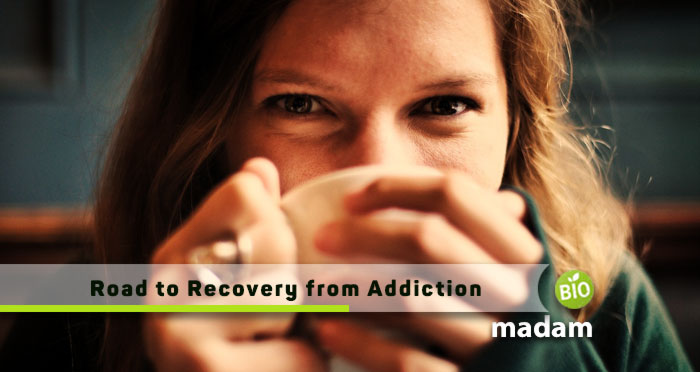Welcome to a comprehensive guide that will help you navigate the road to recovery from drug and alcohol addiction. It takes courage to acknowledge the problem and accept that change is needed, but rest assured, you are not alone. Begin your journey towards a brighter future now by seeking professional assistance and guidance. By utilizing effective strategies such as professional detoxification, therapy, support groups, relapse prevention techniques, self-care practices, and adopting a healthy lifestyle, you can pave the way for positive change and growth.
Acknowledge the Problem and Accept that Change is Needed
Recognizing the impact of drug or alcohol addiction in your life requires honesty with yourself. Reflect on how it has affected your relationships, work, health, and overall happiness. Allow yourself to feel the emotions that come with this acknowledgment; it’s an important part of the healing process. Once you’ve acknowledged the problem, embrace it as an opportunity for growth and positive transformation. Change may seem intimidating at first, but remember that it opens doors to a healthier and happier future. Surround yourself with supportive individuals who understand what you’re going through. Seek out friends or family members who will provide encouragement without judgment. Additionally, consider joining support groups specifically tailored for addiction recovery where you can connect with others on similar journeys. Remember that change takes time and effort – be patient with yourself throughout this process. Celebrate small victories along the way as they indicate progress toward lasting change.

Seek Professional Help and Guidance
When seeking professional help, it’s important to find a treatment center or therapist who specializes in addiction. They will have the knowledge, experience, and resources needed to provide effective treatment. A professional can help you explore the underlying issues that contribute to your addiction and develop personalized strategies for overcoming them, whether you opt for team at Recovery Life Group or go to your local rehab center. Therapy sessions with a trained counselor or therapist can provide invaluable support throughout your recovery journey. They will offer a safe space where you can openly discuss your struggles, fears, and hopes. Through therapy, you can gain insight into patterns of behavior that may be perpetuating your addiction and learn healthier coping mechanisms. In addition to individual therapy, group therapy sessions are often recommended as part of a comprehensive treatment plan. These sessions allow you to connect with others who are facing similar challenges and share experiences in a supportive environment. Group therapy provides encouragement, accountability, and valuable insights from peers who truly understand what you’re going through. It’s also worth considering medication-assisted treatment (MAT) if appropriate for your situation. MAT involves using FDA-approved medications under medical supervision to help manage cravings and withdrawal symptoms associated with substance abuse disorders.
Detoxification and Withdrawal Management
Withdrawal symptoms can be intense and uncomfortable, making it challenging to quit substance use on your own. That’s why seeking guidance from medical professionals is essential. They can provide medications and therapies to alleviate withdrawal symptoms and ensure a safe detoxification process. In addition to medication-assisted treatments, therapy plays a significant role in managing withdrawals. Individual counseling sessions allow you to explore the underlying causes of addiction while learning coping mechanisms for cravings and triggers. Group support also plays an integral part in detoxification and withdrawal management. Connecting with others who are going through similar experiences can provide encouragement, understanding, and accountability throughout the journey. Remember that everyone’s detox experience is unique; some may require longer periods or additional medical interventions than others. It is crucial to follow medical advice closely during this phase of treatment.
Participate in Therapy and Support Groups
Therapy sessions with trained professionals provide a safe space for individuals to explore the underlying causes of their addiction. Through various therapeutic approaches such as cognitive-behavioral therapy (CBT) or dialectical behavior therapy (DBT), individuals can develop healthier coping mechanisms, improve self-awareness, and address any co-occurring mental health issues. Support groups like Alcoholics Anonymous (AA) or Narcotics Anonymous (NA) bring together people who have faced similar struggles with addiction. These gatherings foster empathy, encouragement, and accountability among members. Sharing stories and listening to others’ experiences can be incredibly empowering and serve as a reminder that no one has to face this journey alone. In addition to traditional therapy sessions and support groups, many treatment programs also incorporate alternative therapies such as art therapy or yoga. These activities provide additional outlets for self-expression and stress relief.
Learn and Apply Relapse Prevention Strategies
Once you’ve gone through detoxification and therapy, it’s important to equip yourself with relapse prevention strategies. Recognize the people, places, or situations that may tempt you to use drugs or alcohol again. It could be stress, boredom, social gatherings, or even certain emotions. By identifying these triggers, you can develop a plan to avoid them or cope with them effectively. Surrounding yourself with positive influences is crucial during recovery. Connect with individuals who understand your journey and can provide encouragement and accountability when needed. Find healthy ways to deal with stress and negative emotions instead of turning to substances for relief. This could include exercise, meditation, hobbies, or engaging in creative outlets. Break down your recovery into manageable steps and celebrate each milestone achieved along the way. Setting realistic goals helps build confidence and motivation while preventing feelings of overwhelm. Continue attending therapy sessions or support group meetings even after completing formal treatment programs. Regular check-ins will help reinforce what you’ve learned while providing ongoing guidance from professionals who understand addiction.

Embrace Self-Care and a Healthy Lifestyle
One important aspect of self-care is establishing healthy habits. This can include regular exercise, eating nutritious foods, getting enough sleep, and practicing relaxation techniques such as meditation or deep breathing exercises. Exercise releases endorphins that boost mood and reduce cravings, while proper nutrition provides the nutrients necessary for optimal brain function. In addition to physical health, nurturing emotional well-being is crucial in recovery. Engaging in activities that bring joy and fulfillment can help alleviate stress and improve overall mental health. This could be pursuing hobbies or interests you neglected during active addiction or connecting with supportive friends and family. Self-care also involves setting boundaries and prioritizing your needs. Learning to say no when overwhelmed or triggered by potential relapse situations is vital for maintaining sobriety. Surrounding yourself with positive influences who support your recovery journey can provide the encouragement needed on difficult days.
Embarking on the road to recovery from drug and alcohol addiction is no easy task, but it is a journey that can lead to a brighter and healthier future. By acknowledging the problem, seeking professional help, participating in therapy and support groups, learning relapse prevention strategies, and embracing self-care and a healthy lifestyle, individuals can take control of their lives once again. Remember, recovery is not a linear process. There may be setbacks along the way, but with determination and support, success is achievable. It’s important to surround yourself with positive influences and maintain an open mind throughout your journey.

Hi, they call me Jenna, and I am also known for achieving a gold medal during my Ph.D. in science life. I always had a dream to educate people through my utmost writing hobby. So, I chose this blogging path, and Biomadam gave me this opportunity to present for them. I now stand to entertain you. Continue reading my articles & discuss if you’ve any confusion through the comment section below.

